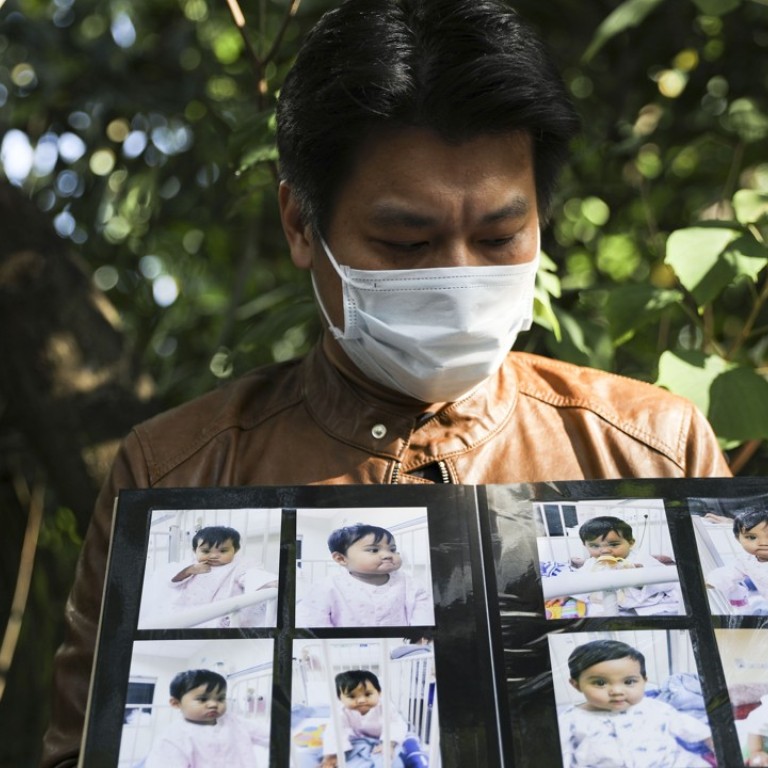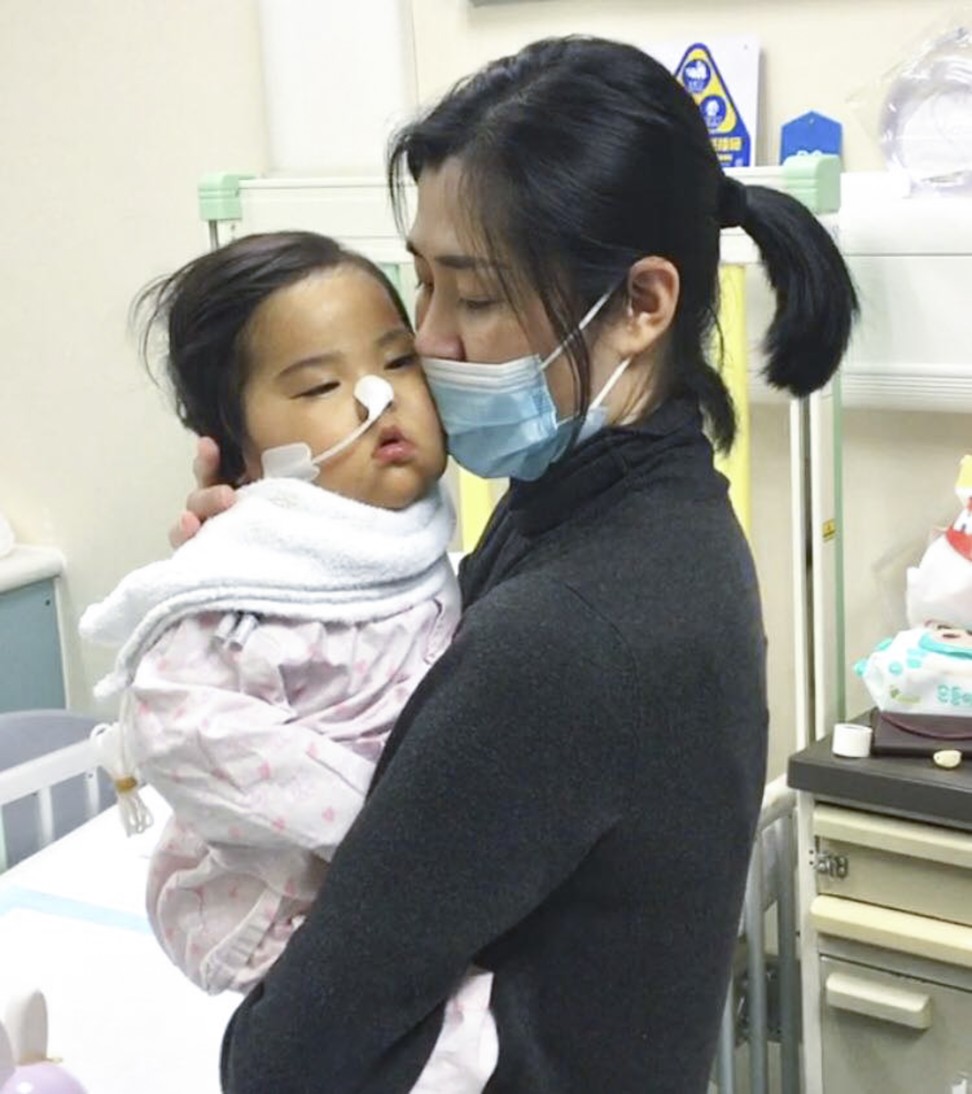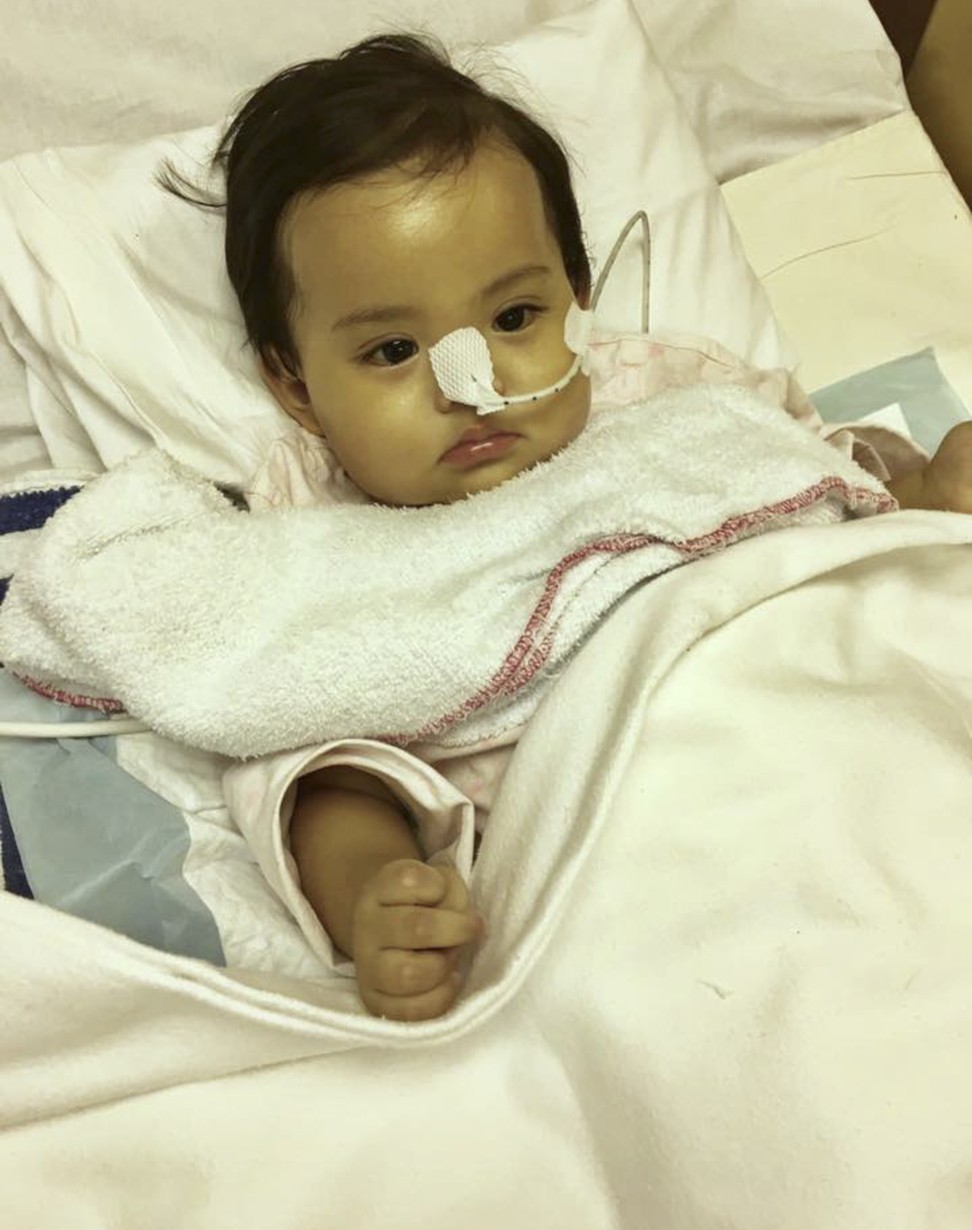
Hong Kong hospital staff ‘inexperienced’ in case of baby who had cardiac arrest
Investigation panel finds they relied excessively on monitoring devices, as father ‘unwillingly’ accepts report
An inexperienced nurse and a paediatric surgeon excessively relied on faulty monitoring devices when they saw a baby suffering a cardiac arrest just an hour after she underwent liver surgery in Hong Kong, an investigation panel said on Monday.
Yu-yan, now 15 months old, was in a stable condition on Monday night at Queen Mary Hospital, three months after her fateful kasai operation – a procedure to repair bile ducts – on December 8, 2017.
The father said the baby was suffering from seizures and sustained brain damage.
“She now has cerebral palsy, but the doctors are not sure if it will be irreversible,” he said.
“We, especially my wife, have been under huge mental and physical pressure. The road towards rehabilitation will be long.”
The investigation report released on Monday by a panel chaired by paediatrics consultant Dr Lee So-lun of the Duchess of Kent Children’s Hospital, concluded that certain health-care staff at Queen Mary Hospital, the teaching hospital of the University of Hong Kong, were “inexperienced in recognising the baby girl’s “continuous deterioration”.
The staff “resorted to their learned behaviour and overreliance on using the monitoring devices” that measure oxygen and blood pressure, the report added.
Hospital chief executive Dr Luk Che-chung said after the report was released on Monday: “We are very sorry for all the unhappiness and worries suffered by Yu-yan, her parents and other family members, throughout the whole recovery process.”
We are very sorry for all the unhappiness and worries suffered by Yu-yan, her parents and other family members
Yu-yan first had bile duct surgery at Prince of Wales Hospital in Sha Tin where she was admitted on February 16, 2017 but was transferred to Queen Mary on November 27, 2017.
She underwent a second kasai procedure at Queen Mary on December 8.
After the operation at 6.30pm, she was transferred to a regular paediatric ward, instead of a paediatric intensive care unit. An hour later, the nurse saw the baby having cardiac arrest.
The nurse began resuscitation efforts before calling the paediatric surgeon for help – all in six minutes.
The baby became comatose and was rushed to the hospital’s paediatric intensive care unit.
Medical staff made a “medical decision” to transfer the baby to a regular paediatrics ward after the December 8 surgery when the paediatric intensive care unit still had room to receive patients and was not full.
Nine days before the investigation report went public, Yu-yan’s parents disclosed on their public Facebook page “Yu-yan Recovery” that the baby girl had been diagnosed with epilepsy – a neurological disorder resulting from a lack of oxygen in the brain. She had also been suffering from an accumulation of fluid in her liver. Problems with her bile duct had also not been entirely resolved. On Monday night, she was in a regular paediatrics ward.
Hong Kong hospital under investigation after suspected medical blunder leaves teen half-paralysed
A Hospital Authority spokesman said Yu-yan was in stable condition with “some seizures”.
Summing up its four-month investigation, the five-person expert panel concluded on Monday that the hospital’s decision to not admit the girl to the paediatric intensive care unit had been “acceptable” and “did not deviate from international practice”.
The panel could not ascertain the cause of Yu-yan’s acute deterioration but ruled out the possibility of medical error.
Besides pointing to the medical staff being “inexperienced” and too reliant on the monitoring machines, the experts said communication between the girl’s clinical team and her relatives had been “ineffective”.
The panel gave the hospital five recommendations to prevent a recurrence: cultivate a culture of speaking up; encourage team management for handling deteriorating patients; remind staff of the importance of physical assessment; boost awareness of the importance of effective communication; and establish a response plan for a sudden surge in ward activity.
Alex Lam Chi-yau, chairman of the advocacy group Hong Kong Patients’ Voices, said he was “not against these recommendations” but doubted their adequacy.
Lam said the Hospital Authority should conduct a thorough review of manpower, professional training, and the state of medical devices.
“Medical staff should remain sensitive to changes in patients’ post-surgery conditions, and should ask others to help monitor the patients if it’s necessary to change the machines,” Lam said.
Yu-yan’s father said he “unwillingly accepted” the report.
Woman who needed two liver transplants after medical blunder dies in Hong Kong hospital
“It didn’t detail why emergency support for Yu-yan was delayed, and why the medical staff would choose to change the machine instead of checking her physical conditions first,” he added.
“We call on the hospital and the Hospital Authority to carefully review the whole process behind the incident. We hope for no recurrence. It will ruin not only a baby, but also an entire family.”
The family said it had not asked the hospital for compensation because the damage the girl had suffered had yet to be confirmed.
Yu-yan was born on December 9, 2016, and was diagnosed with biliary atresia. The condition means that bile cannot be effectively discharged from the body. A build-up of bile could lead to yellowing skin, and, in more severe cases, liver failure.




